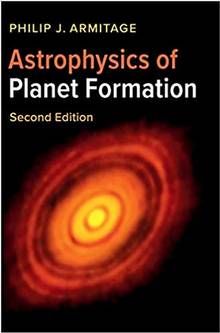Astrophysics of Planet Formation
Armitage, Philip J.
Éditeur : CAMBRIDGE UNIVERSITY PRESS
ISBN papier: 9781108420501
Parution : 2020
Code produit : 1401643
Catégorisation :
Livres /
Science /
Physique /
Astrophysique
Formats disponibles
| Format | Qté. disp. | Prix* | Commander |
|---|---|---|---|
| Livre papier | En rupture de stock** |
Prix membre : 97,74 $ Prix non-membre : 102,88 $ |
*Les prix sont en dollars canadien. Taxes et frais de livraison en sus.
**Ce produits est en rupture de stock mais sera expédié dès qu'ils sera disponible.
Description
Concise and self-contained, this textbook gives a graduate-level introduction to the physical processes that shape planetary systems, covering all stages of planet formation. Writing for readers with undergraduate backgrounds in physics, astronomy, and planetary science, Armitage begins with a description of the structure and evolution of protoplanetary disks, moves on to the formation of planetesimals, rocky, and giant planets, and concludes by describing the gravitational and gas dynamical evolution of planetary systems. He provides a self-contained account of the modern theory of planet formation and, for more advanced readers, carefully selected references to the research literature, noting areas where research is ongoing. The second edition has been thoroughly revised to include observational results from NASA's Kepler mission, ALMA observations and the JUNO mission to Jupiter, new theoretical ideas including pebble accretion, and an up-to-date understanding in areas such as disk evolution and planet migration.























